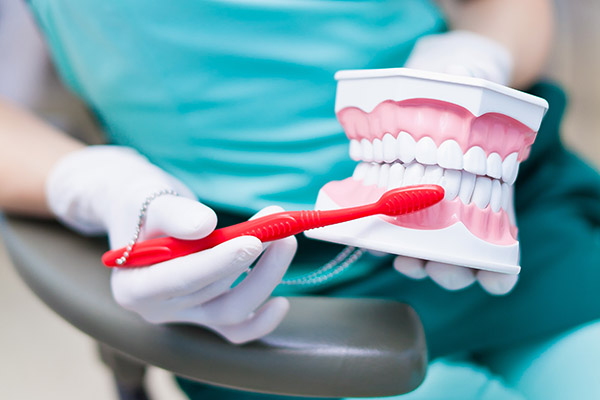Treatment Options for a Broken Tooth from Your General Dentist

A general dentist can provide the treatment you need if you are dealing with a broken tooth. Teeth are the strongest part of the body, but they can be damaged by acids created by oral bacteria, the pressure created by bite forces or trauma to the face.
A broken tooth can be classified as a dental emergency if it is accompanied by bleeding coming from inside the tooth or excruciating pain. This is often a sign the tooth's pulp chamber has been affected by the damage.
How a general dentist might treat a broken tooth
There are a few things a general dentist can do to stop any pain and discomfort associated with a broken tooth and to restore the tooth's appearance and function. Some of the more common ways dentists deal with broken teeth include:
1. Composite resin
Composite resins are one of the more economical ways to restore a broken tooth. The composite is applied to the tooth in layers and it is hardened with a curing light. Composites can be color-matched with the rest of a patient's teeth, so the restored tooth looks just like the rest of the patient's teeth. Composites are typically used to treat minor breaks or chips.
2. Crowns
A dental crown might be recommended if a patient has a severely broken tooth. Crowns cover the visible part of the damaged tooth so bacteria and acids in the mouth cannot cause further damage. Crowns also protect teeth from bite forces and they improve the appearance of teeth.
The installation of a crown requires the general dentist to remove portions of enamel. This creates a better fit for the crown. This is an irreversible procedure, so the tooth will always need to be covered up with a dental crown moving forward.
3. Root canals
Root canals are often performed when a broken tooth has a compromised pulp chamber. Such injuries often come with pain and bleeding. The procedure involves the dentist drilling a hole into the tooth and using a series of files to remove the soft tissues in the pulp chamber.
The dentist then disinfects the pulp chamber before closing it up with fillings. The tooth is typically covered with a crown to complete the treatment. Root canals make it possible for dentists to save severely damaged teeth. There is no recovery period after the treatment.
4. Extraction
If the damage to a tooth is severe enough, the dentist might be forced to extract it. This is typically done as a last resort when it is clear the tooth will fall out anyway since most of its structures have already been damaged.
A dentist might also decide to extract a tooth if it is one of the wisdom teeth. These are not necessary, so extractions are often recommended if wisdom teeth become broken.
Fix your broken tooth
Call or visit our Chicago clinic to learn more about how our dentist can fix your broken tooth.
Let's get started…
Request an appointment here: https://www.alluredentalchicago.com or call Allure Dental at (312) 248-7517 for an appointment in our Chicago office.
Check out what others are saying about our services on Yelp: Read our Yelp reviews.
Recent Posts
When you have dentures, you must remember this: proper denture care starts with treating your dentures just like natural teeth. You should keep your dentures clean and shiny to help maintain your new smile. Keeping your dentures and mouth clean will help to extend the life of your new smile! Here are four tips on…
When you are new to wearing dentures, you have many questions involving your denture care. Some people who wear dentures and do not have any natural teeth left believe they no longer need to see their dentist regularly like they used to. For many reasons, making sure you still see your dentist for regular appointments…
The introduction of dental implants has provided a solution to tooth replacement that goes beyond mere function to address the core of personal well-being. Loss of teeth has an impact on a lot more than just dental health — it impacts chewing, talking ability, and confidence. This is where dental implants come into play as…
One of the most common questions that dentists receive about denture care from new denture wearers is if they can keep them in all the time. The short answer is no. Understandably, you may not feel quite like yourself when you take them out, but proper denture care involves removing them once a day for…


